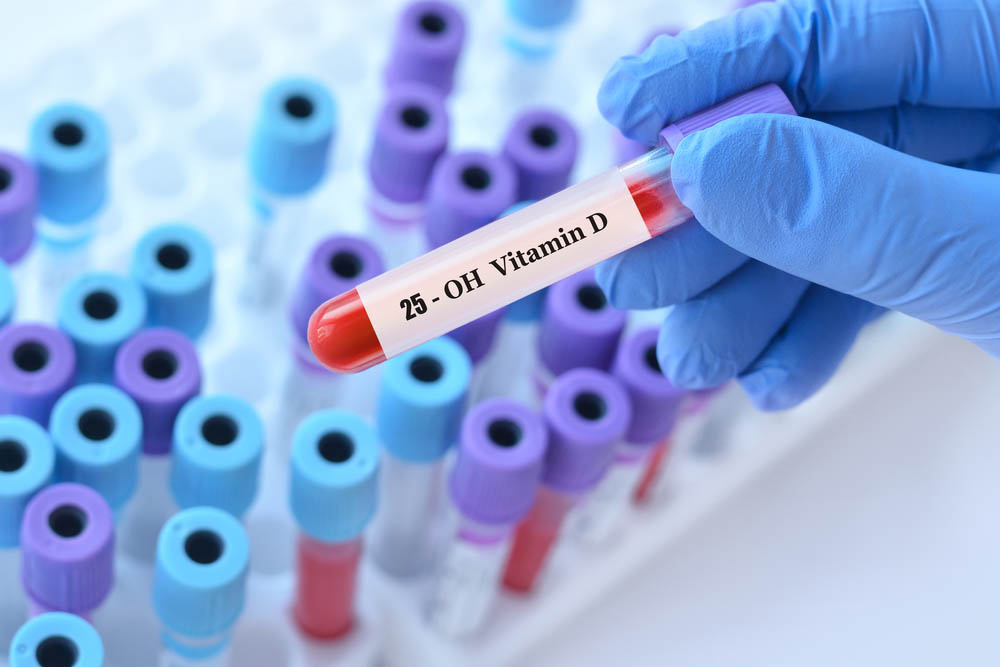Vitamin D testing is an important aspect of maintaining optimal health, especially for those who don’t get enough sunlight or are at risk of deficiency.
However, have you considered how much it costs to get one?
Vitamin D: An overview
Vitamin D is a crucial nutrient with several functions in your body, such as:
- Regulating calcium and phosphate levels for proper bone formation and strength
- Boosts immune function
- Helps in muscle growth
Your body has the ability to produce vitamin D when exposed to sunlight. However, some people at risk of vitamin D deficiency because of factors, like:
- Limited sun exposure
- Lifestyle choices
- Certain medical conditions
Deficiency in vitamin D can lead to:
- Weakened bones
- Increased risk of fractures
- Muscle weakness
- Compromised immune function
Why take a vitamin D test?
Taking a vitamin D test can help identify deficiencies and guide appropriate treatment, which may include:
- Increased sun exposure
- Dietary changes
- Supplementation
If you have osteoporosis or conditions that affect vitamin D absorption, regular testing is especially important.
Symptoms of vitamin D deficiency
Symptoms of vitamin D deficiency can manifest in various ways, which can impact your overall health and well-being. Common symptoms include:
- Frequent illness
- Fatigue
- Bone or back pain
- Depression
Frequent illness is a common symptom of vitamin D deficiency because this nutrient plays a role in immune function. Fatigue and low energy levels can also be signs of deficiency, which affects daily activities and productivity.
Bone or back pain may indicate insufficient calcium absorption, which can lead to weakened bones and an increased risk of fractures.
Depression has also been linked to low vitamin D levels since vitamin D helps in brain health and mood regulation.

When should you get a vitamin D test?
While vitamin D deficiency is common due to lack of sun exposure, not everyone needs regular testing. There are certain situations when getting a vitamin D test is recommended.
Consider getting tested if you’re:
- Experiencing symptoms of vitamin D
- Have osteoporosis or conditions that affect vitamin D absorption
- Have a medical condition that requires specific treatments or medications that may affect vitamin D levels
The frequency of vitamin D testing depends on individual circumstances and the recommendations of your healthcare provider. They will assess your risk factors, symptoms and overall health to determine the appropriate timing for testing.
Vitamin D test procedure
The vitamin D test in a healthcare setting starts with taking a simple blood sample, which is then sent to a laboratory for analysis.
During the procedure, a healthcare professional will clean the area where the blood will be drawn, usually the inside of the elbow or the back of the hand. They will then apply a tourniquet to temporarily restrict blood flow and make it easier to locate a suitable vein.
Once a vein is found, they’ll insert a needle to draw a small amount of blood.
After the sample is collected, they’ll remove the tourniquet and apply a bandage to the puncture site. Then, they’ll send the blood sample to a laboratory, where it will be tested to determine the levels of vitamin D in the body.
The results of the test will help your healthcare provider determine if vitamin D supplementation or lifestyle changes are necessary. Consult with a healthcare professional to determine if a vitamin D test is needed and to follow their instructions for preparation, such as fasting requirements or medication restrictions.
Vitamin D test results
If you’re vitamin D deficient, the results can help your healthcare providers develop a treatment plan that may include supplementation or lifestyle changes to increase vitamin D levels.
On the other hand, if your vitamin D levels are optimal, you can be assured that you’re meeting the recommended requirements for vitamin D.
Understanding the vitamin D test results can also help healthcare providers identify any underlying health issues or conditions that may be affecting vitamin D absorption or metabolism. This information can be used to address these underlying issues and improve overall health and well-being.
Additionally, the results of the vitamin D test can provide insights into the effectiveness of any ongoing treatments or interventions aimed at improving vitamin D levels.
Costs of vitamin D tests
When considering the cost of a vitamin D test, keep in mind to weigh the potential benefits relative to the cost.
Vitamin D tests are generally affordable, with prices typically around $50. Most health insurance plans cover the cost of these tests, especially when they’re doctor-mandated or a limited number of tests per year.
However, costs may vary depending on the testing provider.
At-home testing kits are also available as a more affordable option for assessing vitamin D levels and other micronutrients.
For FDA-approved at-home testing kits, check out our offer here.
What is the difference between vitamin D and vitamin D3?
Vitamin D is a group of fat-soluble secosteroids that includes vitamin D1, D2, and D3. However, when people refer to vitamin D, they’re usually referring to vitamin D3, also known as cholecalciferol.
Vitamin D3 is the most biologically active form of vitamin D and is synthesized in the skin when it is exposed to sunlight. It can also be obtained from certain foods and dietary supplements.
On the other hand, vitamin D2, also known as ergocalciferol, is derived from plants and fungi.
While both forms can be converted into the active form in the body, vitamin D3 is believed to be more effective at raising and maintaining vitamin D levels. It’s also the preferred form for supplements as it has been shown to have a higher potency and better absorption compared to vitamin D2.
When getting a vitamin D test, see to it that the test measures the level of vitamin D3 in the body, as this is the form that is most relevant to overall health and well-being.
Key takeaway
Vitamin D testing is an important tool for identifying deficiencies and ensuring proper bone health and immune function.
Though the pricing varies on the provider, the cost of vitamin D tests is generally affordable, and most health insurance plans cover the expense.




















































